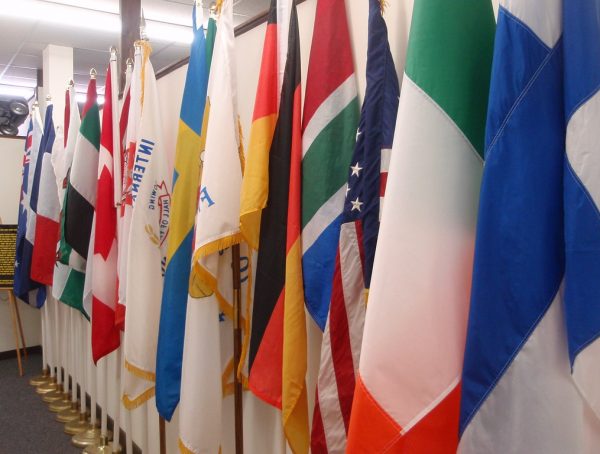Peter Maer is a former White House correspondent for CBS News who reported both national and international news over the course of his career. Addressing a class of journalism students at the University of Mississippi, Maer talks about the realities of being an international correspondent.
First, in all types of journalism, it is important to know one’s audience and adapt to it. Coverage should be understandable and accessible, but it should also spark the interest of the audience.
“You have to always find a way to make your stories, make your reporting from wherever you are, to make yourself relevant. To make the stories that you report on relevant to your listeners, to your viewers, to your readers … You have to find a way to drive those stories home,” Maer says.
He always asks himself why the people of Granite City, IL, would want to know about this particular story, whether he is covering national or international news. He believes this should be a barometer in your reporting, wherever your hometown is, wondering why people should read, listen to or watch your story helps frame your reporting and make it relevant.
Maer then addresses the challenges of personal safety when working in foreign countries. One of the advantages of working for a big news network like CBS News was the fact that they provide their own threat assessments and guides to reporters who are traveling outside of the country. In the case of freelancing, the task is a little trickier, since reporters are on their own, they have to do their research and learn about local dangers. However, the State Department website gives the profile of every country, including a threat assessment and health guidelines. Traveling abroad also means getting the proper vaccines required for travel and entry in foreign territory, as well as having a valid passport, and a visa or authorization of entry if needed.
Maer continues with the technical and logistical issues international correspondents have to wonder about, the first one being the availability of food and water.
“When I traveled to remote places, I always stocked up on a half a suitcase full of peanut butter crackers and those little canned tuna that come with crackers and stuff. You always want to have some kind of backup because again, you just don’t know when you’re going to see nutrition,” Maer says.
Then comes modes of transportation and communication.
“The larger outlets will have producers and what we call fixers on the ground to take care of all your needs, to serve as translators … to arrange for your driver and your hotel accommodations,” Maer mentions.
Once again, for freelancers, the task is harder, since they have to take care of their own transportation from the airport, book their own hotel, hire their own translator. Journalists also have to inquire about cellphone capability, as well as access to the Web and to Wifi. Similarly, modes of payment should not be neglected such as whether U.S. credit cards work in the visiting country, researching the currency exchange rate, and even bringing a supply of local currency before taking off.
In some specific situations though, Maer had been asked to be careful using technology or even wary of it. For instance, he had been warned that journalists’ hotel rooms in Moscow might be under surveillance or bugged, and he had been advised by the White House not to use the wifi in Chinese hotels in case malicious software would be downloaded on their devices.
Another element that most people tend to forget about is that traveling abroad oftentimes means jet lag. Maer’s advice is to get used to being productive despite it.
“Get over it fast and learn how to ignore it, there is just literally no time for it when you’re working as a reporter on the ground. You have to learn to avoid the urge for sleep as soon as you land, and if it’s daylight at your destination go outside and soak it up,” Maer says.
Finally, when you actually are abroad doing your job, make sure to learn and respect the local customs and social norms.
“Don’t be an ugly American,” Maer jokes. It is always great to know one or many foreign languages, but if you do not then make sure you bring with you these travel books that list familiar sayings like “Thank you” or “Where is the bathroom.”
Some countries might have more restrictions than others, just be aware of them. Maer reads to the students a list he was given before a trip to Saudi Arabia, where alcohol is not allowed within the country, even if it is in your mouthwash. Be mindful some countries may have different or more guidelines for women, which has to be respected as well.
In the end, being an international White House correspondent is not an easy job, for, on top of regular duties shared by all journalists, foreign correspondents have more things to think about, and a different work rhythm.
“I often said being a White House correspondent is something like being a firefighter. You wait for the bell to go off, but you know, between the bells, you just did a lot of homework, it just never stopped,” Maer concludes.








